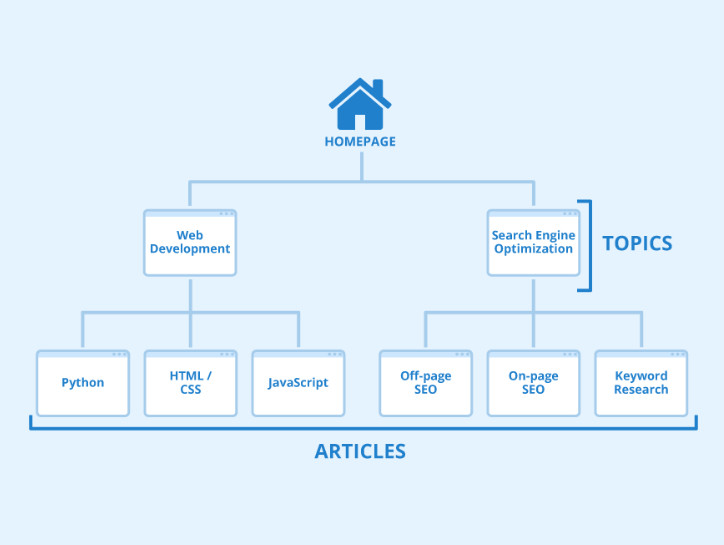Regarding on-page SEO writing, certain ranking factors can significantly affect how Google and other search engines rank your content. Understanding the most important on-page SEO writing ranking factors can help you optimize your content for higher rankings and more organic traffic. In this blog post, we’ll look at the three most important on-page SEO writing ranking factors so you can take your content to the next level. Regarding on-page SEO writing, having the right ranking factors in place can significantly impact your success. Understanding the three most important ranking factors is essential if you want your website to rank higher on Google. This blog post will look at the top three on-page SEO writing ranking factors and how you can improve your search engine rankings. So, read on to learn more about these crucial ranking factors and how they can help your website.

Use Keywords Strategically
When it comes to on-page SEO writing, keywords are among the most important ranking factors. Keywords are words or phrases used to match search queries entered into a search engine. By strategically placing relevant keywords throughout your content, you can increase the visibility of your website and its rankings.
When selecting keywords for your content, it’s important to use both short-tail and long-tail keywords. Short-tail keywords are generally just one or two words long, while long-tail keywords tend to be three or more long. Short-tail keywords are more competitive, while long-tail keywords have less competition, but they also get fewer searches. Using both types of keywords can help you reach a broader audience.
When using keywords, be sure not to overuse them, as this can adversely affect them. Use them naturally and sparingly throughout your content and be sure that they make sense in the context. It’s also important to note that search engine algorithms are constantly changing, so keep up with the latest trends and adjust your keyword strategy accordingly.
Optimize Your Title Tags and Meta Descriptions
Title tags and meta descriptions are one of the most important on-page SEO ranking factors. Title tags are HTML elements that tell search engines and users what your page is about. They appear in the SERPs (search engine results pages) as clickable headlines, so they’re a key part of how users decide which result to click on.
Meta descriptions provide additional information about your page and can help convince users to click through your website. They should include the most relevant information about the page and be concise, between 50-160 characters.
Get More Information about On-Page
Note these are just examples:
- https://khaanhamza935.tinyblogging.com/200-Stylish-Facebook-Bio-Copy-Paste-57811768
- https://medium.com/@khaanhamza935/the-10-most-stylish-facebook-bios-weve-ever-seen-the-10-funniest-facebook-bios-we-ve-ever-seen-225e17944a8e
For title tags and meta descriptions, ensure you include your focus keyword, as this will help you rank higher for that keyword. Also, ensure your titles and descriptions are unique for each page on your website, as this will help ensure you don’t get penalized for duplicate content.
It would help if you also aimed to create engaging titles and descriptions and encourage users to click through to your site. To do this, include actionable language that promises something useful or interesting, such as a discount or an answer to a question. Finally, avoid keyword stuffing in your titles and descriptions, as this can harm your rankings.
Structure Your Content with Headings and Subheadings
Headings and subheadings are essential elements of SEO-friendly content. They help to organize information in a logical and easy-to-read manner.
The use of headings and subheadings can also boost SEO rankings by helping search engine bots better understand the structure of the content and the main topics.
The most important heading tag is the H1 tag, which should be used for the page’s title or post. The H2 tags are also important for indicating subtopics or sections, and the H3 tags are useful for further breaking down each section into subcategories.
It’s important to ensure that each heading accurately describes the content that follows it and is relevant to the overall topic of the post. Additionally, keywords should be used naturally in headings and subheadings to help with SEO.
You can also use formatting, such as bold or italics, to help emphasize important points within headings and subheadings. This can be helpful for both readers and search engine bots in understanding what is most important on your page.
Overall, correctly using headings and subheadings can greatly improve your content’s readability and increase its chances of ranking higher in search engines. Keep in mind that keyword research and optimization should also be part of your strategy for headings and subheadings.
Which Is Better for Your Website: Backlinks or Content?
When ranking your website on search engine results pages (SERPs), one of the biggest debates is whether backlinks or content are more important.
When it comes to SEO, there’s no one-size-fits-all answer. Both backlinks and content are essential pieces of a successful SEO strategy. It would help if you had both for an effective SEO campaign.
Backlinks act like votes from other websites, telling search engines that your content is valuable and authoritative. They are an important part of the algorithm and help your website to rank higher in the SERPs. Content is also vital because it provides visitors with valuable information and helps you establish credibility and authority in your field. Quality content can drive more visitors to your website, leading to more backlinks.
So while both backlinks and content are necessarily more important than the other, having a good balance will help you achieve the highest rankings in the SERPs. Focus on creating high-quality content that is well-optimized for search engines and also build relationships with other websites to acquire backlinks. Doing so will help you to reach more potential customers and establish yourself as an authority in your niche.
On-Page SEO Checklist | All Steps of On-Page SEO Explained | On-Page SEO (Youtube Video)
Conclusion
On-page SEO is an essential part of any successful search engine optimization strategy. By understanding and leveraging the three most important ranking factors in on-page SEO writing – keyword usage, optimized title tags and meta descriptions, and content structure – you can help your website rank higher in search engine results pages.
There is no one-size-fits-all solution when it comes to SEO. When building an effective SEO strategy, it is important to look at both backlinks and content. However, on-page SEO should always be a top priority when driving organic traffic to your website. By focusing on the key ranking factors mentioned in this article, you can ensure that your website has the best chance of success in search engine results pages. For more you can visit our website.


